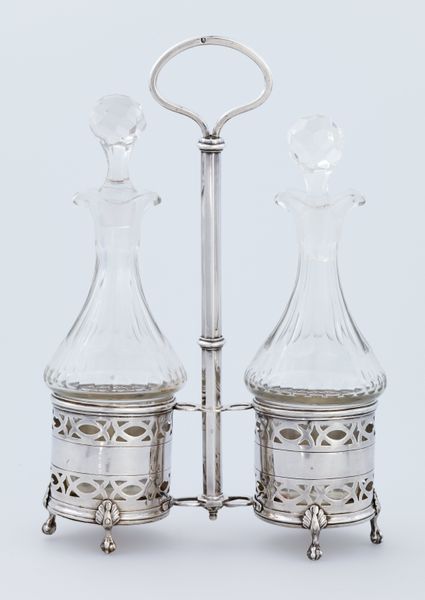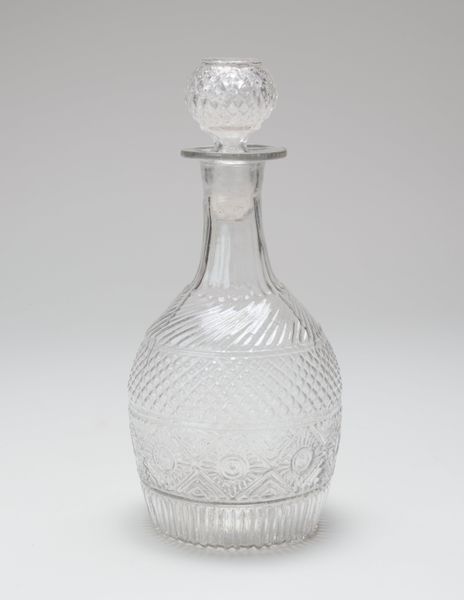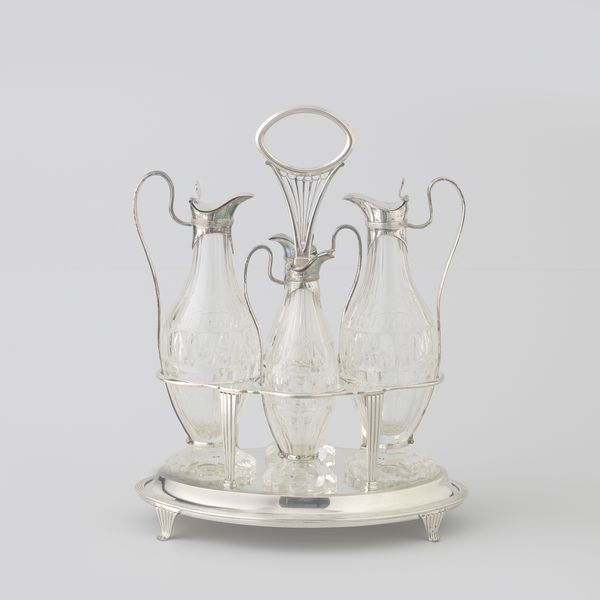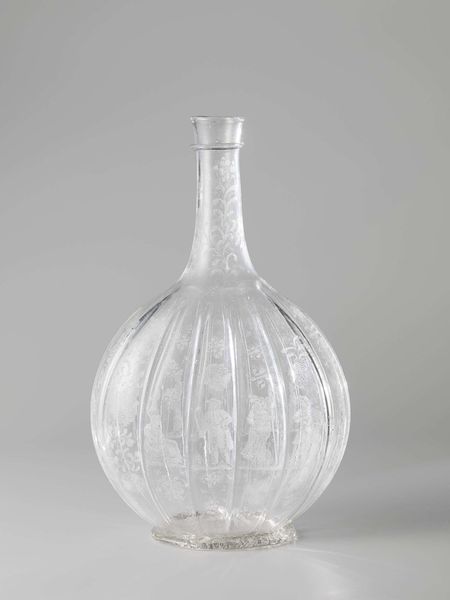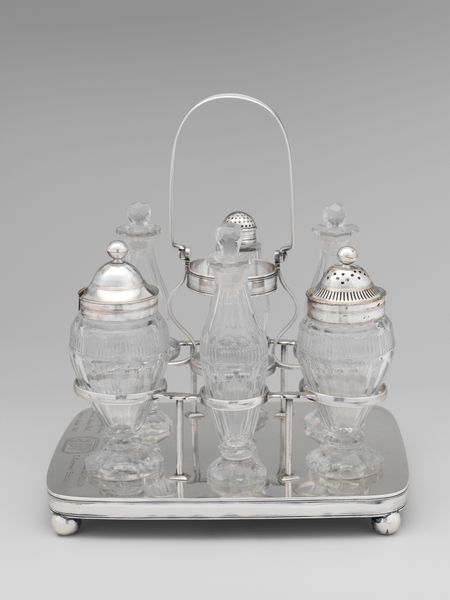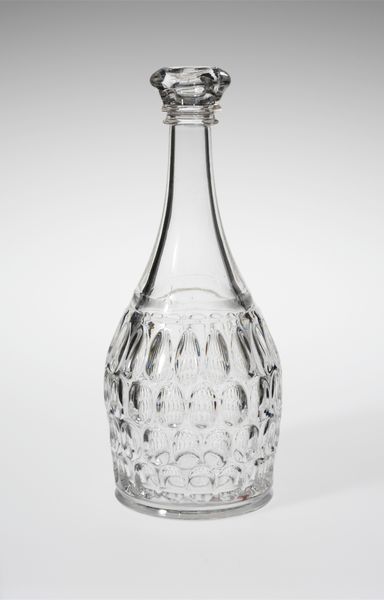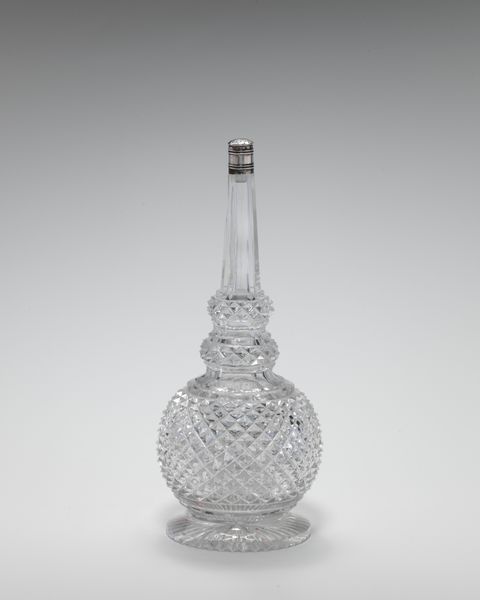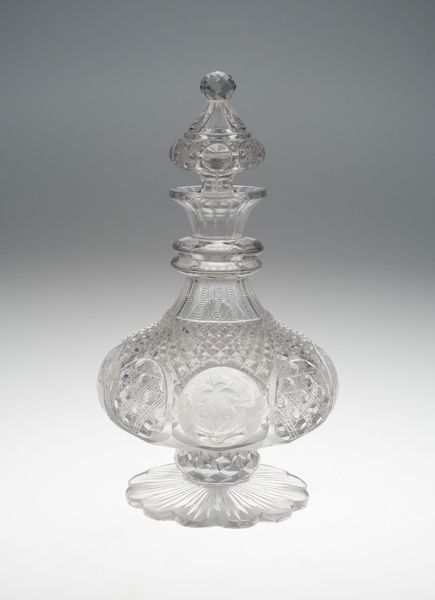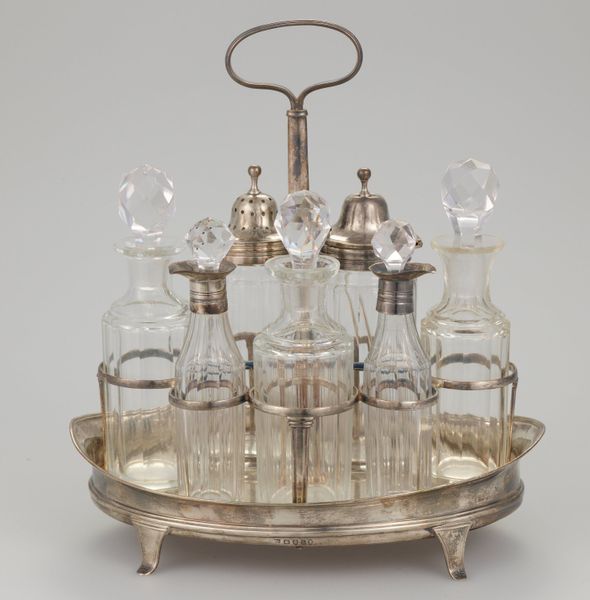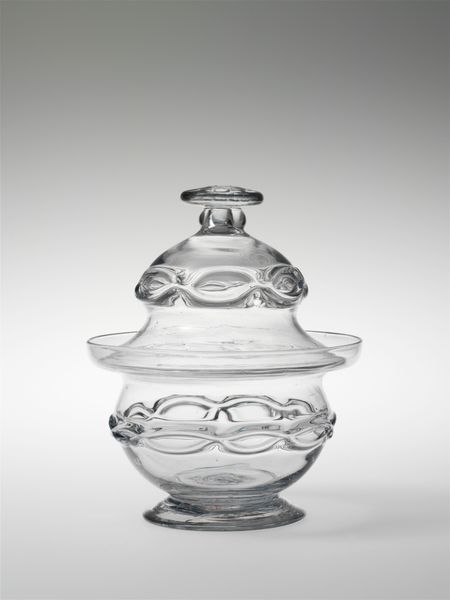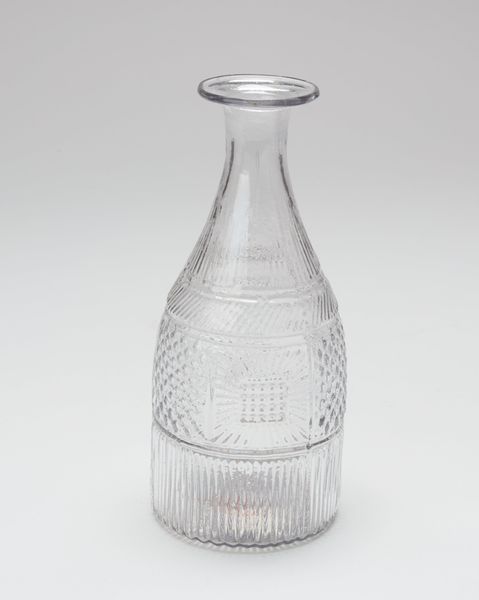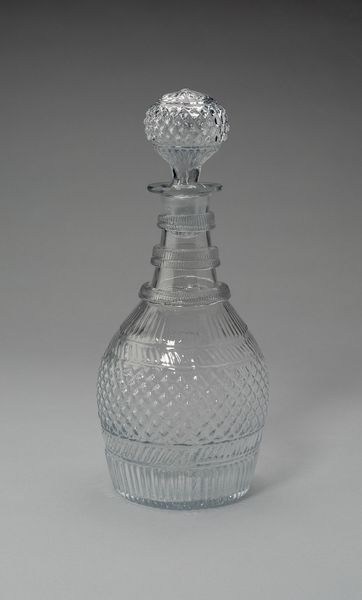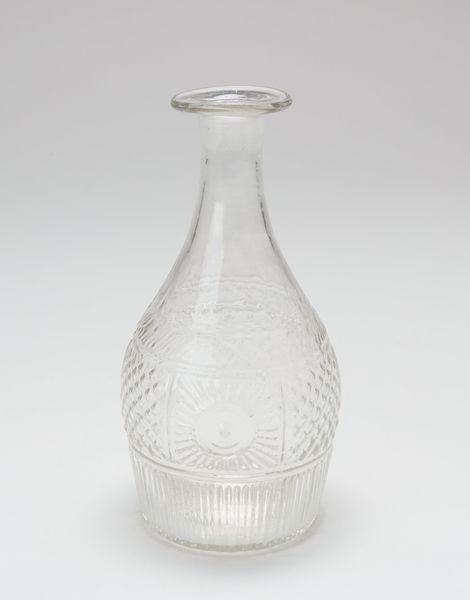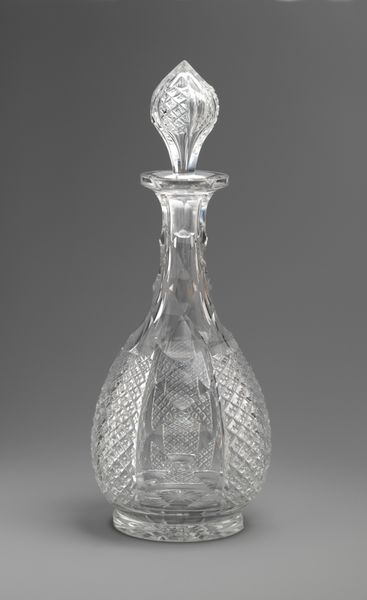
Stop van fles behorende bij olie- en azijnstel bestaande uit met vier flessen in een spitsovale houder 1801
0:00
0:00
ceramic
#
product photograph merchandise
#
product studio photography
#
3d printed part
#
product photography advertising
#
product fashion photography
#
ceramic
#
culinary art
#
stoneware
#
wash background
#
ceramic
#
product photography
#
decorative-art
Dimensions: height 5 cm, diameter 5 cm
Copyright: Rijks Museum: Open Domain
Curator: The item before us is a cruet-stand made around 1801, designed to hold bottles for oil, vinegar, or other condiments. What's your initial take on this functional piece? Editor: It feels strangely elegant. Almost too delicate for everyday use, although its purpose is quite ordinary. The intricate cut glass of the bottles gives the piece an aura of refinement, set in that silvery holder. Curator: Cruet-stands like this, during the late 18th and early 19th centuries, were far more than just practical tableware. They signaled a certain social status and access to global commodities. Think about it: owning such an object implied not only wealth but also a knowledge of fine dining and a participation in a consumer culture increasingly tied to colonial trade routes. Editor: So, these weren’t merely for seasoning food; they were emblems of a social hierarchy. I imagine the types of oils and vinegars kept in them would speak volumes about a household’s place in society. Were certain ingredients prized above others due to their origins or how they were acquired? Curator: Absolutely. Olive oil, for example, might have carried connotations of worldly experience or even political leaning, particularly in regions where culinary nationalism was on the rise. Consider the political weight even simple table dressings might carry, as a form of quiet, material demonstration. Editor: It’s fascinating to consider how objects seemingly confined to the domestic sphere were quietly reflecting broader sociopolitical tensions and economic inequalities. This cruet-stand wasn’t simply holding liquids; it was holding power dynamics, too. And the level of detail involved also reflects ideas about gender, class, and the societal expectations for performative entertaining. Curator: Precisely. Each curve of the glass, each carefully placed bottle, contributes to an image carefully curated for public consumption. Editor: Thanks, it truly makes me wonder about the stories this cruet-stand could tell about who used it and what those choices represented about them and the larger world around them.
Comments
No comments
Be the first to comment and join the conversation on the ultimate creative platform.
